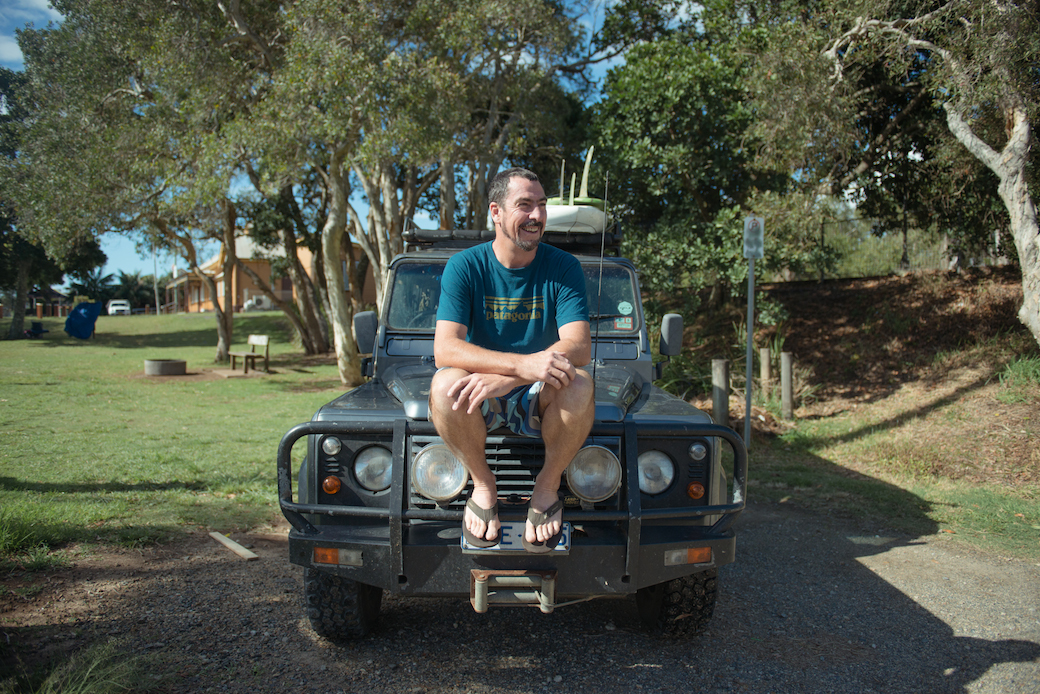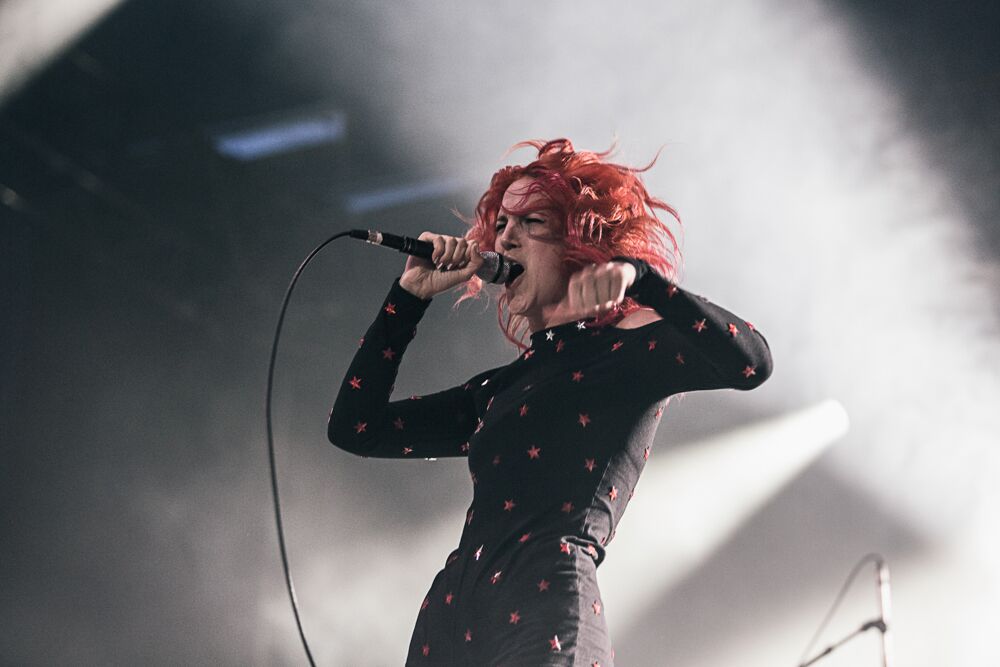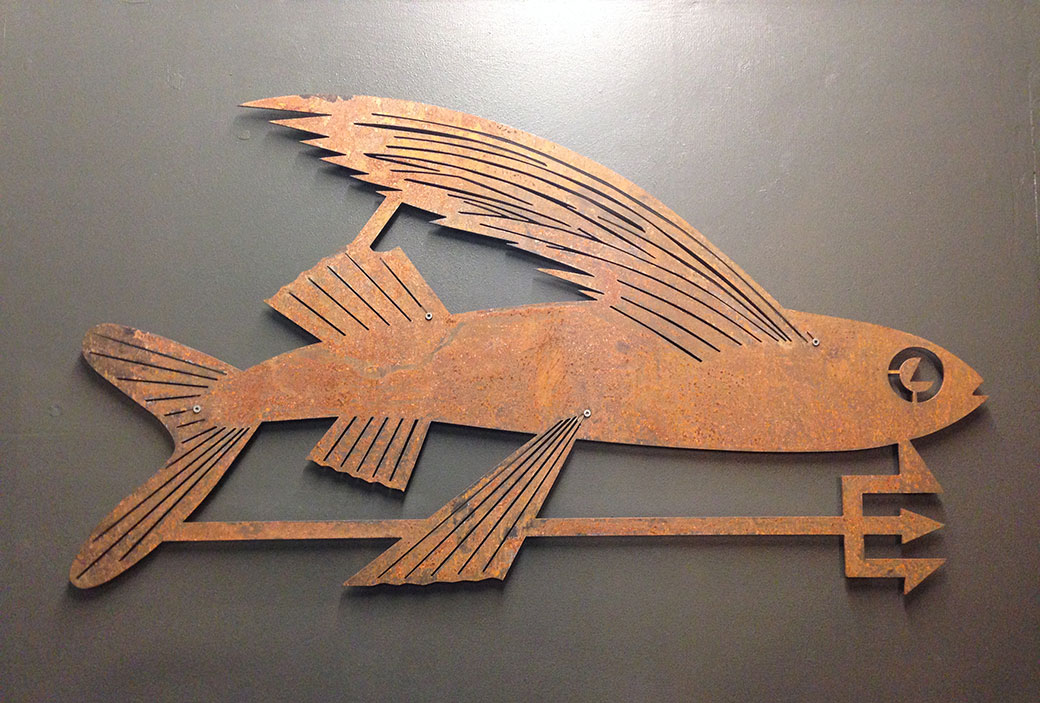
GLEN CASEY | THE RIGHT KIND OF BUSINESS
It’s hard, in this world of hidden agendas, sweatshop labour and high street fashion, to be ethical in our choices. We are lucky here in Byron Bay to have access to wonderfully natural and organic foods and a host of locally manufactured craftwares and apparel, but there are many items in our list of life requirements that can’t readily be sourced locally, sustainably or ethically.
Take rucksacks for example. Most of us will own one or have need for one at some stage, but how often have you thought about the materials used, the manufacturer’s factory conditions or the sustainability of that bag? To varying degrees – and through no fault of our own – we all have our heads buried in the sand.
 Glen Casey has seen this issue from the inside out. Born and raised in Victoria, Casey grew up in the heart of the Australian surf industry. “My family lived in the western suburbs of Melbourne,” he recalls of his youth. “I started surfing with a family of doctors who had a mansion down at Anglesea. I became really good friends with their son and they would throw me in the car when I was about eight or nine and take me with them.”
Glen Casey has seen this issue from the inside out. Born and raised in Victoria, Casey grew up in the heart of the Australian surf industry. “My family lived in the western suburbs of Melbourne,” he recalls of his youth. “I started surfing with a family of doctors who had a mansion down at Anglesea. I became really good friends with their son and they would throw me in the car when I was about eight or nine and take me with them.”
His parents saw and encouraged his passion for surfing, purchasing a caravan in Torquay, loading up the family and making the trip to the coast on most weekends of the summer months. Little did they know it, but these family sojourns would create the foundation of the rest of Casey’s life.
Two thirds of Australia’s – if not the world’s – leading surf brands was founded in Torquay. Both Rip Curl and Quiksilver were spawned in 1969 in the small, sleepy, seaside town, 90 kilometres to the southwest of Melbourne and it was here, and through this industry, that Casey would pursue a career.
“I ended up living in Torquay and working for Rip Curl when I was 20. I guess you could say I was born in the industry. That was in about 1981 and all through the ’80s the industry really started to find its legs. The companies started to branch out from a cottage industry into menswear and into the malls and shopping centres. So I was really at the forefront of making that happen and pushing Rip Curl’s clothing into the outer reaches of the market.”
This became the focus of the next ten years of Casey’s life, an unrelinquishing drive to expand the brand and increase revenue. This was a formative time for Casey. In 1983, when the Rip Curl Pro surfing contest was held, right on his doorstep at Bells Beach, he entered the trials, battled his way through the heats and qualified for the main event. The entire town turned out in support of their local hero who, although beaten in the first round by World Number 2, Shane Horan, gained much media attention. But, despite his close friends, Tony Ray and John Darby, pursuing a professional career, it was the quiet life that appealed to Casey.
“I kept my sales job at Rip Curl and went surfing in south west Victoria, which is where I ended up spending pretty much 30 years of my life, at quiet little beaches with no one around.” But one person was around, a person who would instigate a paradigm shift in Casey that would change his life.
 Wayne Lynch has always been a man of freedom. Never able to conform to the restrictions of society at large, much less the media-saturated commitments of a major, sponsored surfer, Lynch has always sought solitude. For much of his early career, Lynch was sponsored by Rip Curl, through which he and Casey formed their friendship, but this friendship was also the cause of Casey’s separation from the brand. The pair, along with renowned surfer and yogi Simon Buttonshaw, explored the coast, following the waves and connecting with the land and their inner selves.
Wayne Lynch has always been a man of freedom. Never able to conform to the restrictions of society at large, much less the media-saturated commitments of a major, sponsored surfer, Lynch has always sought solitude. For much of his early career, Lynch was sponsored by Rip Curl, through which he and Casey formed their friendship, but this friendship was also the cause of Casey’s separation from the brand. The pair, along with renowned surfer and yogi Simon Buttonshaw, explored the coast, following the waves and connecting with the land and their inner selves.
Separating from Rip Curl, Casey founded a sales agency, taking on numerous brands and establishing a business that accounted for the next 20 years of his life. But Casey eventually drifted away from this consumer culture and a constant drive to increase sales and meet targets, recognising the importance in a life of integrity.
“I had one of those moments where I understood what it was like to feel as if you have done something good with your life, something that had meaning. Those philosophies really started to sink in deep.”
Through Lynch, Casey became aware of Patagonia, another clothing brand, yes, but one with the same ideals that he was cultivating and seeing the importance of in an otherwise money-driven industry. In 2008, Casey launched Patagonia Australia. Still based in Torquay, he followed a similar career path, promoting a business, looking for sales and so on, but with many very distinct differences that were far more aligned to his beliefs.
The products were recycled, ethically sourced, organic and sweatshop free, the company didn’t force sales increase, expansion or new contracts and it looked after it’s staff, the environment and the communities surrounding its retail stores in any way it could. One percent of annual profit was given directly to environmental causes and each and every supplier was scrutinised to ensure each stage of the manufacturing process aligned with the company’s stringent guidelines. If it didn’t, Patagonia either found a different source or, even better, worked with the supplier, investing in them and turning their business around to make it environmentally and ethically sound.
Finally, Casey could commit the same knowledge, skills and energy to a business that held integrity above wealth, ethics above commerce and the environment above margins.
It has been over six years since Casey first joined the Patagonia family. He has been building the brand tirelessly nationwide, bringing in ambassadors to represent Patagonia from all over the country and expanding awareness of what Patagonia stands for, all from the head office in his hometown of Torquay. But times and needs change, and with Casey’s young daughter, Willow, growing up fast, he realised the time had come to head north.



 “There were two main reasons, on a business level, that I brought Patagonia to Byron Bay. We saw Byron as a very important place for surfing and the people we associated with here are very natural and have a similar alignment to Patagonia. So we naturally chose here above any other surf location in Australia, because there are so many enivronmental-thinking people, they live off the land, and that is what is important to us. We choose our ambassadors because of their inner values, not their celebrity. Johnny Abegg and Taylor and Rusty Miller are all ambassadors for Patagonia and their beliefs and values make them perfect people in the area to align with.
“There were two main reasons, on a business level, that I brought Patagonia to Byron Bay. We saw Byron as a very important place for surfing and the people we associated with here are very natural and have a similar alignment to Patagonia. So we naturally chose here above any other surf location in Australia, because there are so many enivronmental-thinking people, they live off the land, and that is what is important to us. We choose our ambassadors because of their inner values, not their celebrity. Johnny Abegg and Taylor and Rusty Miller are all ambassadors for Patagonia and their beliefs and values make them perfect people in the area to align with.
“Secondly, it was the quality of the marketplace that brought us here. We make sure, when we open a store in a new location, that people will understand what we’re doing. There is a quality of person here in Byron that we knew would understand what we are as a brand. We could have gone to Margaret River or to Noosa, but we saw the people here in the Shire to be on that higher level, a higher plane of thinking, appreciative of environmental choices and looking after nature. We saw that quality of person far more here than in any other place in Australia.”
Casey and his wife, Cathy, have made the decision to call Byron Bay home and to commit one hundred percent to the town. They recognise the value of the community, its ethos and the benefits these would have upon their children. Patagonia has facilitated this move, but it has also allowed Casey to share his beliefs with our town. For him, just as for Patagonia founder, Yvon Chouinard, business isn’t about muscling your way in, take-take-taking and making a quick dollar. It is about providing a service to a community, giving only what is needed, and doing so ethically, sustainably and with awareness.
– This article first appeared on Common Ground Australia on Jan 11, 2014

WOODFORD | THAT OTHER FESTIVAL
You May Also Like

LIVING IN PEACEFUL OCEANS | IN HONOUR OF TADASHI NAKAHARA
June 3, 2015
WHAT MUD | THERE’S NO STOPPING SPLENDOUR
August 4, 2015


